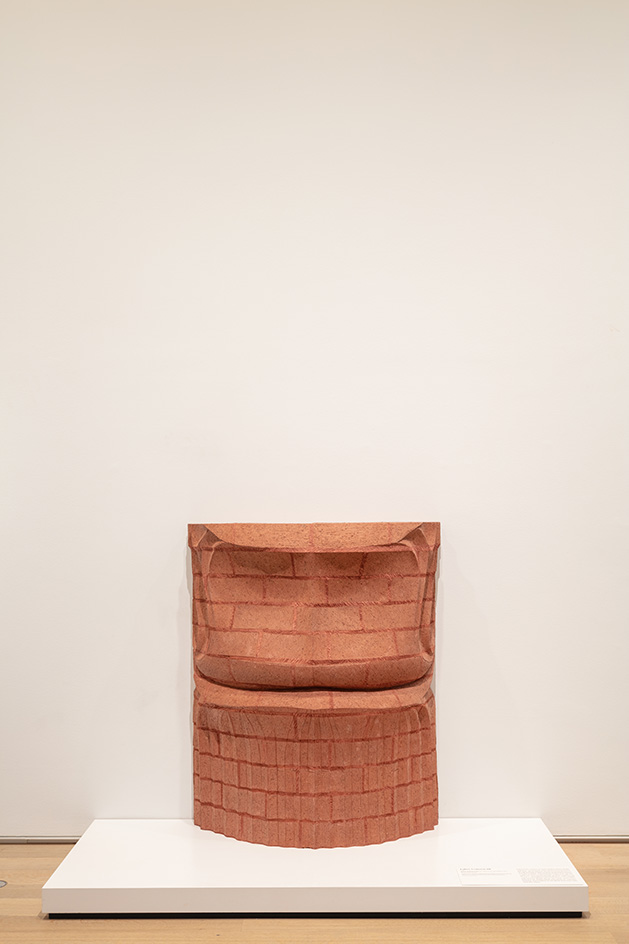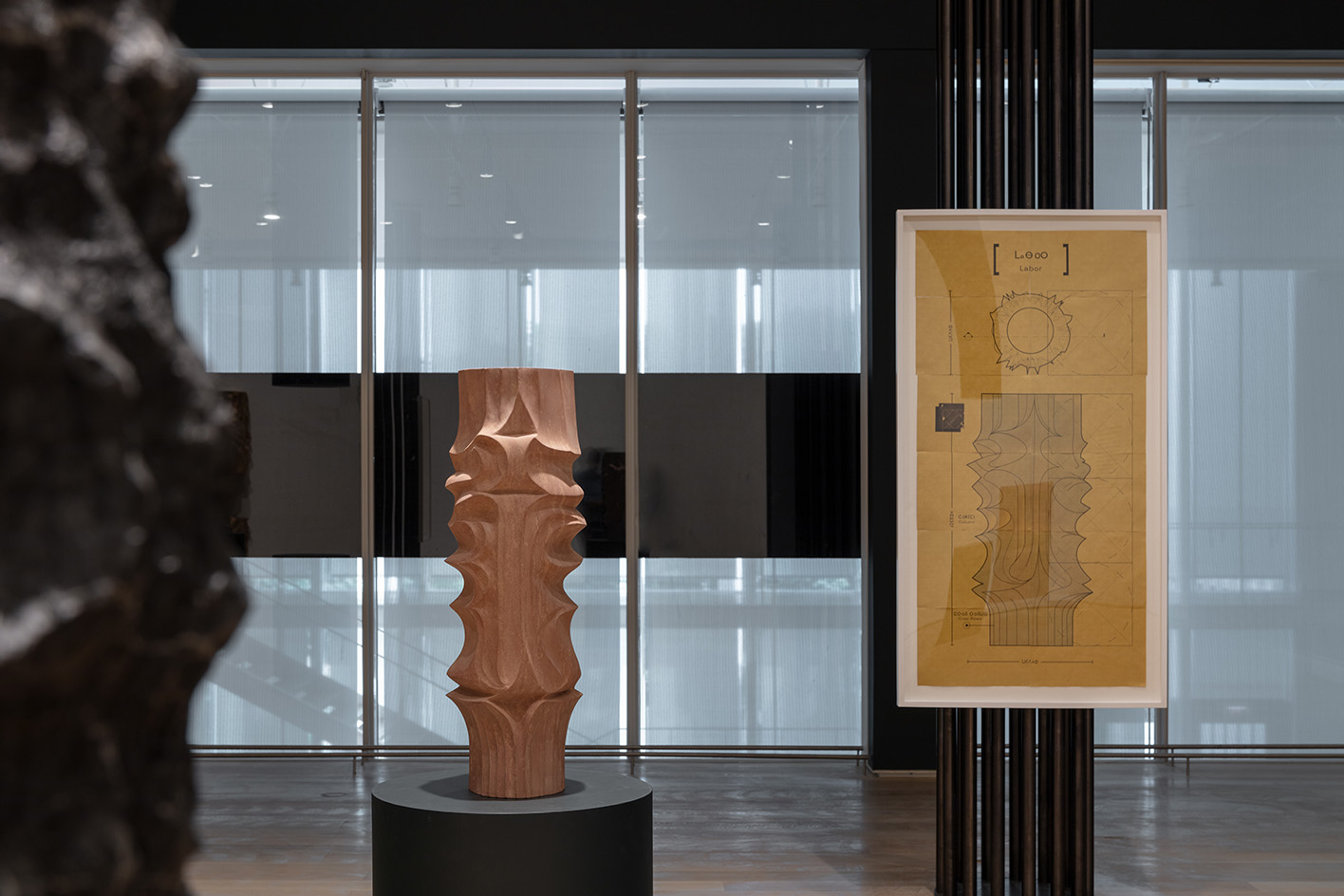
It is hard to believe this is the first solo Germane Barnes exhibition in a museum. The architect, designer and educator, who has widely exhibited and discussed his work to date – including temporary urban installations and a prominent presence at the Venice Architecture Biennale 2023 – has been a strong voice in the American architecture and design world – and beyond – in particular through his research on identity and archaeology (his thesis on the ‘non-white contribution to Roman and Italian architecture' won him the Wheelwright Prize 2021).
It is this thread that the architect is also pulling with this newly launched solo show at the Art Institute of Chicago – titled 'Germane Barnes: Columnar Disorder'.
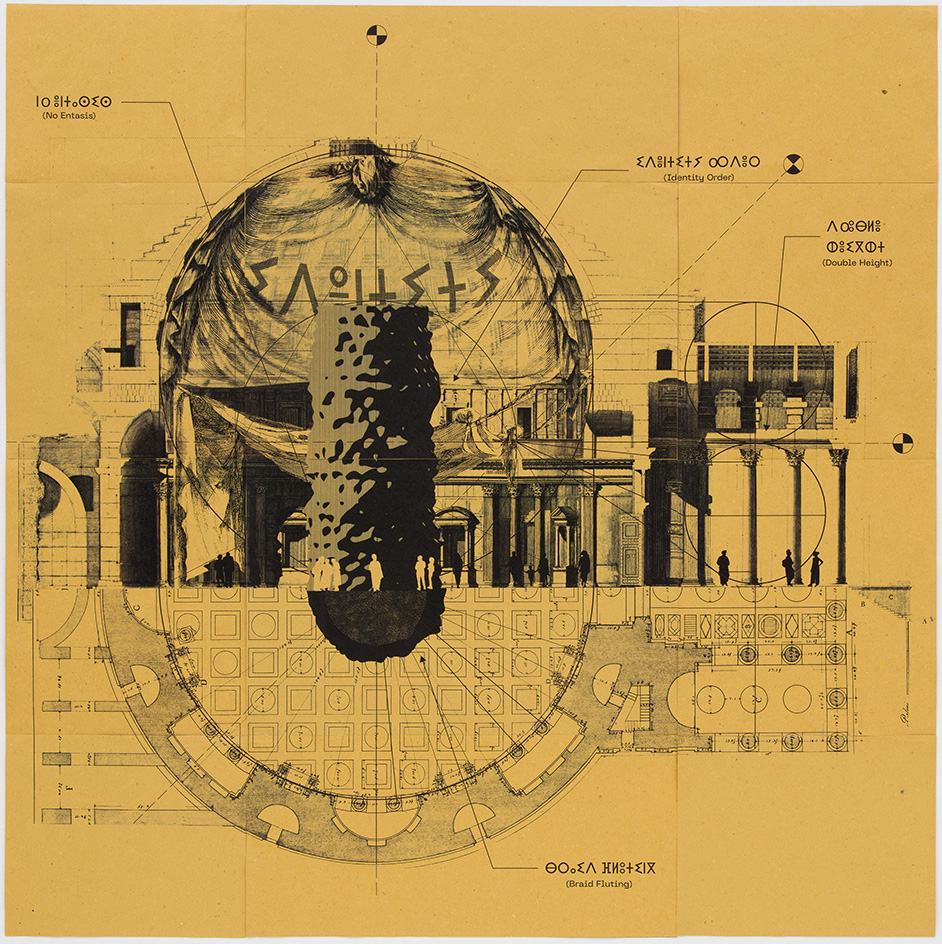
Inside the new Germane Barnes exhibition
The exhibition, which opened its doors this past weekend, offers a sculptural, critical reflection on 'the enduring architectural legacy of the Classical orders – the Doric, Ionic, and Corinthian'. Creating an alternative to the existing styles, seen through the global Black experience, history, and values, Barnes crafts drawings, collages and physical representations of his subject.
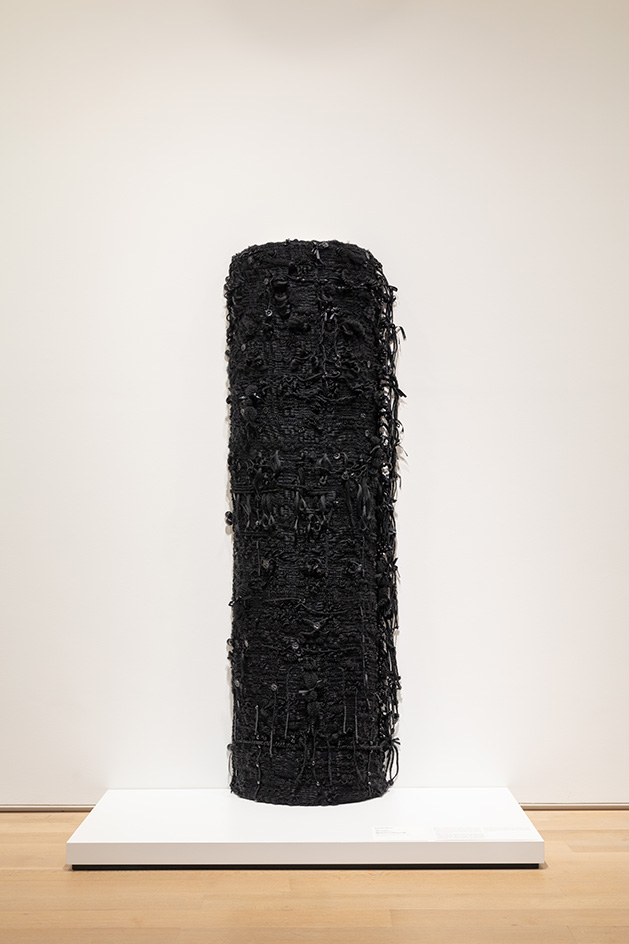
'My research of African diasporic spatial legacies has only emboldened my pride in Black stories and the desperate need for their telling,' Barnes says. 'The opportunity to share this work in the city that shaped me is an incredible feeling.' The result is a powerfully captivating installation built around three column iterations – The Identity Column (celebrating the Black body and beauty), the Labor Column (and the role of slavery in American economic growth), and the Migration Column (nodding to water as a site of Black memory, loss, and selfhood).
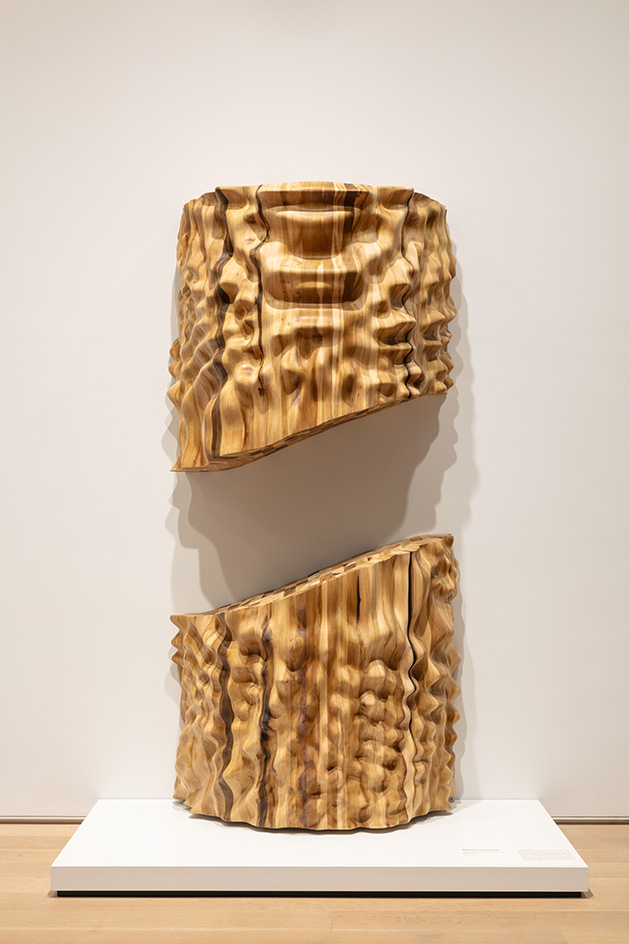
'It’s crucial we support emerging architectural voices like Barnes, who is paving the way for the next generation of architects while also inviting new audiences to celebrate the architectural creativity and innovation of the African diaspora,' says Irene Sunwoo, the John H Bryan chair and curator of architecture and design at the Chicago institution. 'This exhibition serves as testament to Barnes’ ambition to radically transform the field.'
